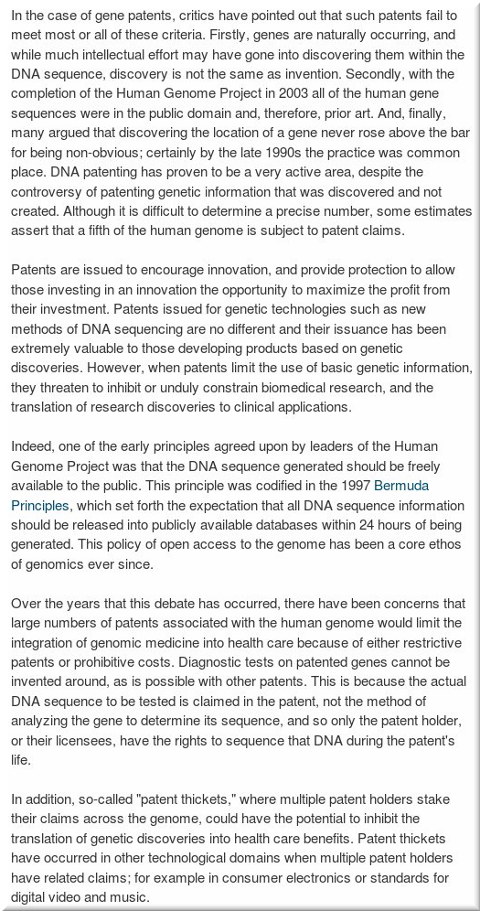
 Reference: genome.gov (US)
Reference: genome.gov (US)
WITH patents on beer, on genome, on food and plants (even animals!) the European Patent Office has begun attracting all sorts of 'awkward' questions that not even the USPTO is attracting. Is nature up for privatisation? Are naturally-recurring things "inventions"? Are they "owned"? Almost a decade ago we covered protests against the EPO, staged by angry farmers in Germany. Yesterday we found this new article/press release titled "Stop patents on bread and beer now!"
The patent applications were filed to cover conventional breeding without any method of genetic engineering being involved. Currently, more and more patents are being filed in Europe on the conventional breeding of plants and animals, despite EU institutions having declared that this is something they want to stop. Unless political decision-makers take action, many of them have a good chance of being granted by the European Patent Office (EPO).
Research undertaken by the initiative No Patents on Seeds! shows that in 2016 around 60 patent applications on the conventional breeding of plants were filed at the World Intellectual Property Institution (WIPO) in Geneva. Around 50 further patents concern conventional breeding and methods of genetic engineering were filed in addition. Altogether, around 30 percent of all patent applications filed in the plant breeding sector were on conventional plant breeding. All in all, around 340 patent applications were filed in this sector. Most of these patents will be examined by the EPO.
"We are seeing companies such as Monsanto, Bayer, DuPont, Dow AgroSciences and Syngenta file more and more applications on conventional plant breeding in Europe. These companies are not simply wasting their time and money – they have an expectation that these patents will be granted", says Ruth Tippe, researcher for No Patents on Seeds!